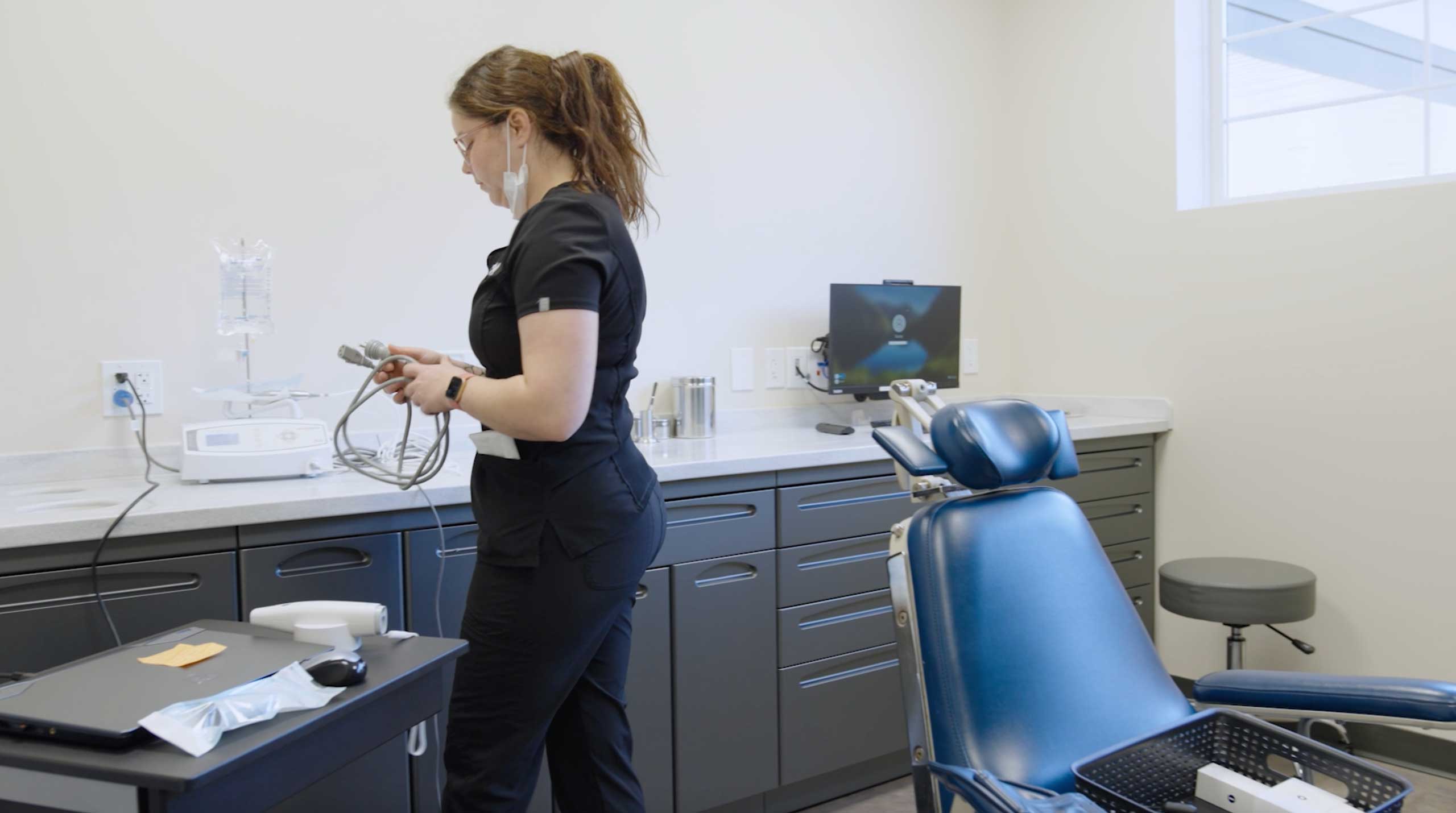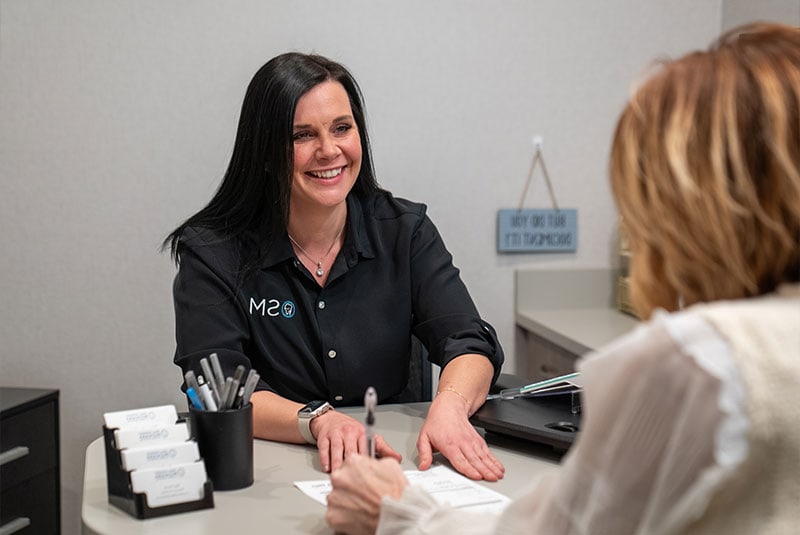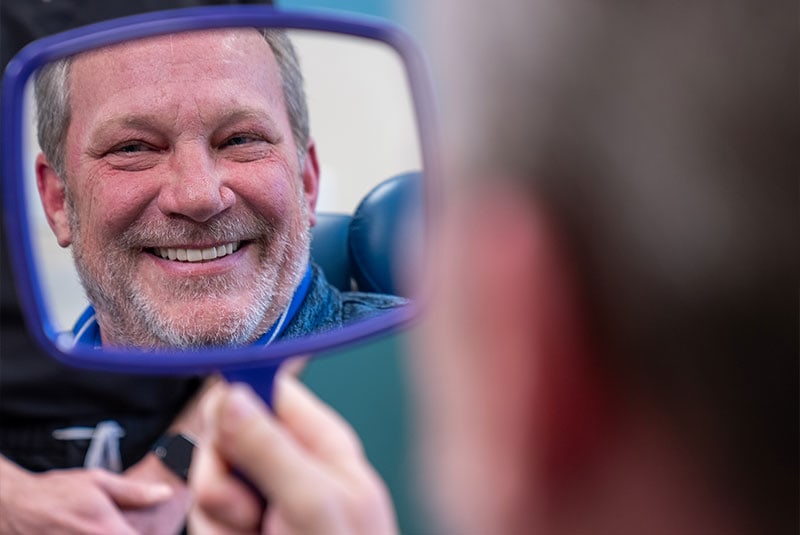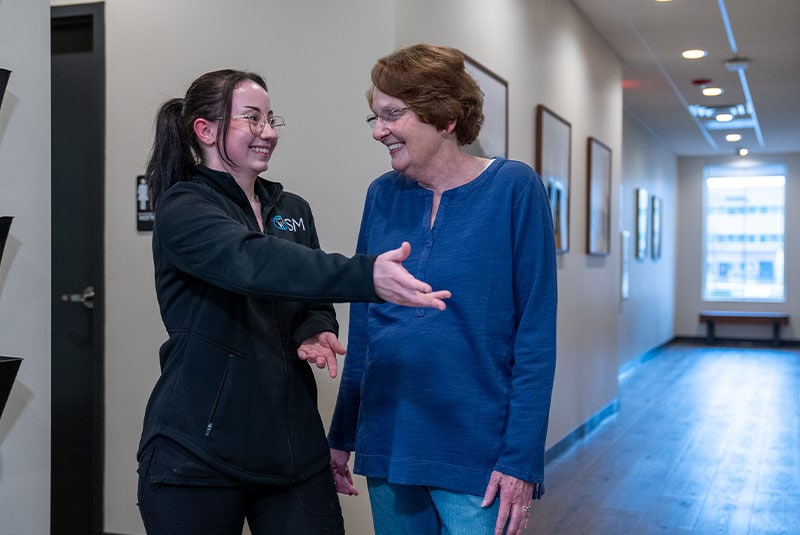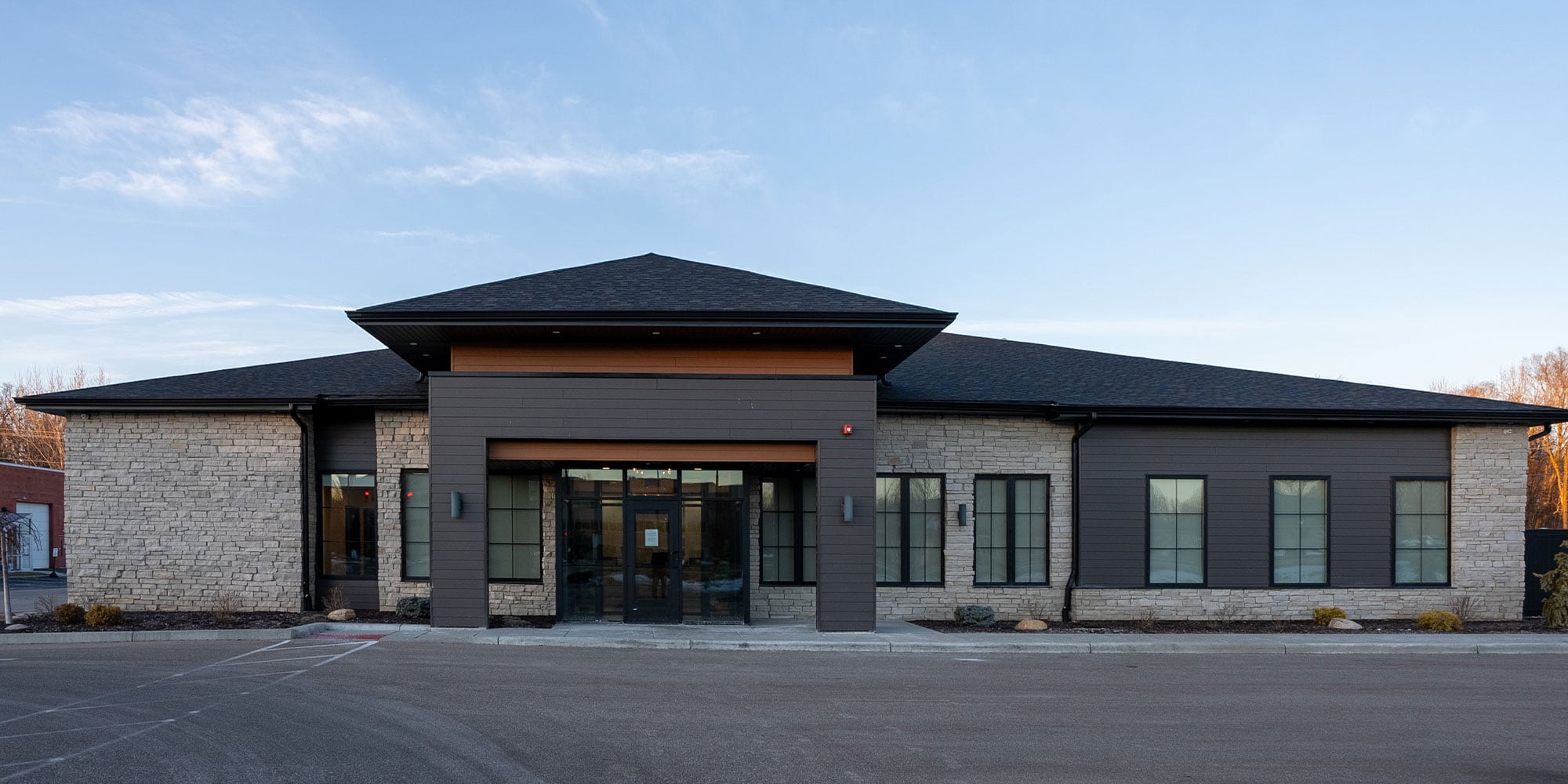Why an Oral Surgeon?
It is natural to want to work with your own dentist whenever possible. You have established a rapport, and you trust his or her work. If your dentist has referred you to Oral Surgery Michiana, they believe the unique skills of an oral surgeon are needed to give you the best possible care. We communicate with your dentist throughout your treatment, working collaboratively to improve your dental health.
At Oral Surgery Michiana, we perform a full scope of oral and maxillofacial surgery procedures, including everything from tooth extractions to complex full-mouth restorations. Dr. Collins and Dr. Hull are experts in all areas of dental and oral surgery and work closely with our local dental colleagues to guarantee exceptional results.

Advantages of an Oral Surgeon
Most dentists do not regularly perform oral surgery or handle complex cases requiring surgery. In these instances, a specialist such as a Board-Certified Oral Surgeon is the best choice. This is particularly true for invasive dental procedures, including dental implants, wisdom teeth removal, and treatment of traumatic facial injuries.
Experience
Oral Surgeons are specialists with highly developed surgical skills and medical knowledge that goes beyond routine dental care. After receiving their dental degrees, Dr. Hull, Dr. Collins, and Dr. Nizza went through an additional four years of rigorous training in hospital settings to become oral surgeons. During those years, they spent countless hours performing surgery, administering anesthesia, and assisting in medical emergencies. They bring these experiences to Oral Surgery Michiana.
Medical Knowledge
Oral Surgeons receive extensive medical training following dental school. They are fully trained in anesthesia, including general anesthesia, which may not be offered in a general dentist’s office. Our doctors have the medical knowledge and understanding to perform oral surgery on medically compromised patients, as well as those with developmental disabilities in a comfortable, efficient, and predictable manner.
Anesthesia Options
Each type of oral surgery requires anesthesia of some sort. Oral Surgeons have extensive training in administering all forms of anesthesia, including Local, N2O, IV sedation, and general anesthesia. Our doctors work closely with each patient to tailor the anesthesia provided for their unique treatment.
Ability to Provide Treatment in a Hospital Setting
Because Oral Surgeons can administer anesthesia, there is no need to schedule an outside anesthesiologist for surgical procedures. At Oral Surgery Michiana, our clinical assistants are DAANCE certified; an educational program that certifies those assisting doctors with the administration of dental anesthesia. Our clinical team is experienced in all aspects of oral surgery aftercare. Patient care is self-contained, and procedures are performed in our office in fully stocked, hospital-grade surgical suites. In most situations, patients can have oral surgery without a hospital stay or multiple care providers billing separately for their services.
Oral Surgery Michiana is the choice to provide you with all of your oral surgery needs. Contact our South Bend office at
(574) 272-8823 or
request a request consultation to discuss your oral care needs.

